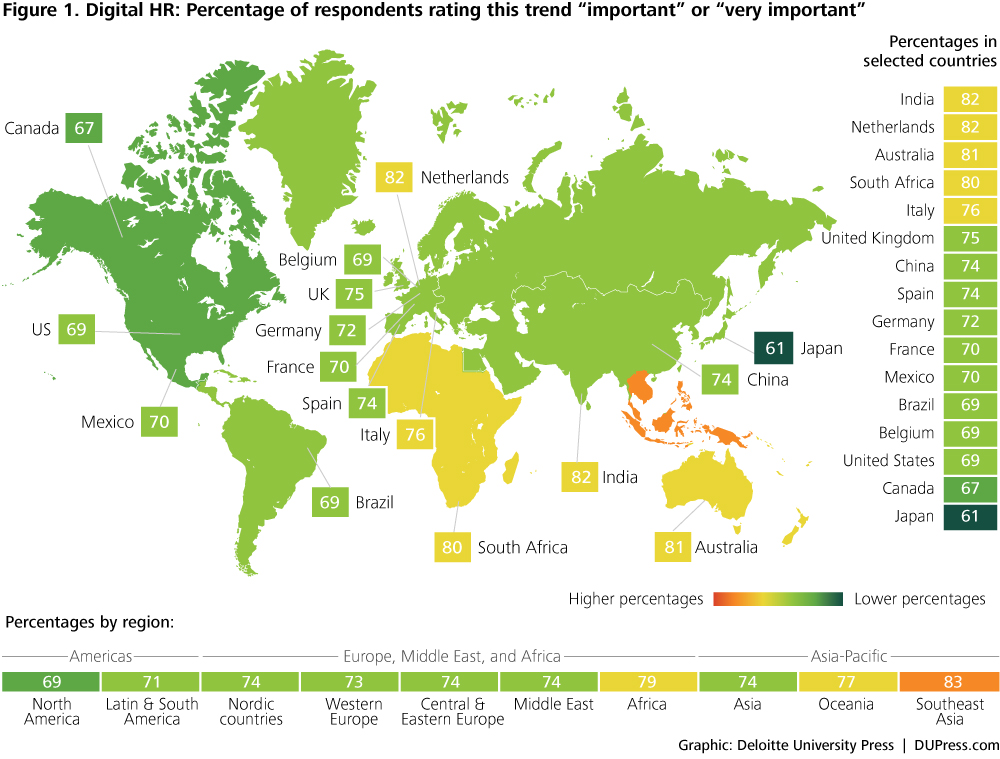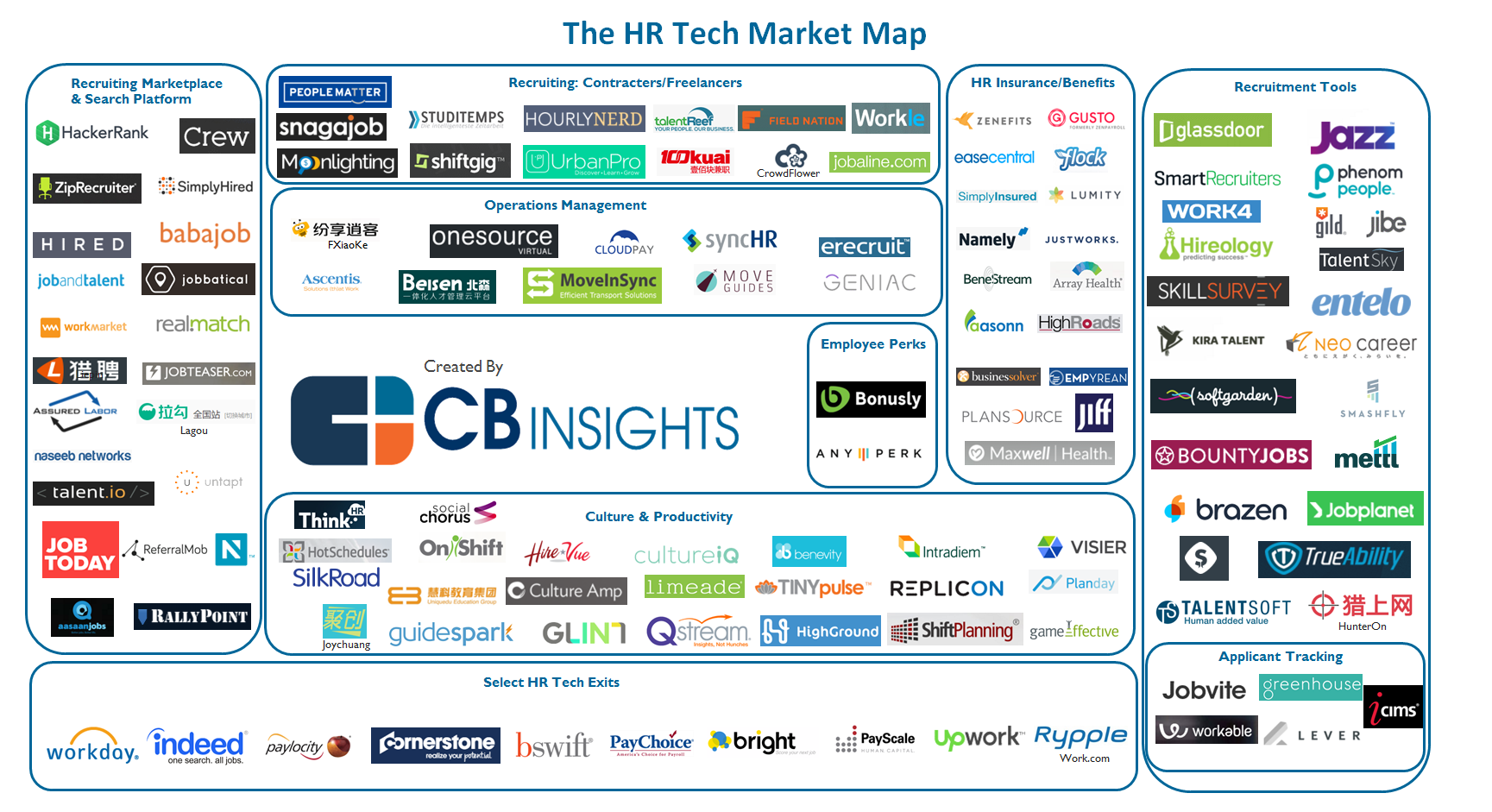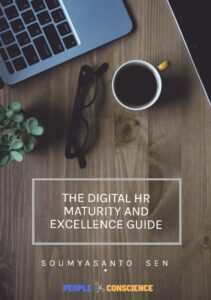Digital is fundamentally changing the way businesses and governments operate—from how they interact with customers, citizens and suppliers, to how they manage their employees. New digital technologies enable not only greater integration and flexibility than ever before, but also the ability for employees to have a greater share of voice and ability to participate in defining and even creating their own work experiences. Digital is thus poised to radically disrupt HR as usual and redefine the future of the human resources function in the next decade. Eventually, HR and talent processes and the technology that enables them will no longer constitute their own domain or even be primarily performed by a central HR function. Rather, many aspects of HR and talent management will become fully embedded in how work gets done throughout an organization, thereby becoming an everyday part of doing business. HR departments that ignore this transformation could face obsolescence.
Capgemini Consulting had published numerous articles and research on Digital Transformation. One such is the Unleashing Digital in HR.

In this point of view, the five recent digital developments that we believe will conspire to transform HR:
- Data and integration will be king
- Digital will give power to the people
- Consumer applications will find a home in the enterprise
- Digital will enable customized talent management
- Cloud computing will enable new flexibility and agility
If we see them in details:
- Data and Integration will be king
Analytics has been heralded as the new step change for HR. The use of data to produce business-relevant insights that lead to action. Yet few HR organizations have a robust analytic capability. Collecting data on employees (such as engagement rates) can be expensive and time consuming; new technologies promise to make this easier by enabling HR professionals to offer different employees a ten minute or less online “pulse” survey every day to provide a real-time view of engagement that is not possible with traditional, annual surveys.
- Digital will give power to the people
As digital technology advances, it’s helping companies embed talent management into the fabric of everyday business and into employees’ work and personal lives. Technology advances are enabling HR to put the “human” back into human resources, and helping give people management back to the people.
I’m not talking about the traditional notion of self-service here, or the ability for employees to perform mundane administrative HR activities themselves, like updating their address or viewing a paycheck without HR’s intervention. Instead, we’re talking about involving employees and managers in high-impact talent processes—including recruiting, hiring, succession planning, learning and shaping career paths. All this will happen thanks to an emerging class of social and market-based tools that will let employees manage almost every aspect of their professional lives digitally.
- Consumer Applications will find a home in the enterprise.
Closely linked to the advent of cloud computing is the rise of businesses like LinkedIn, where talent management systems live on the web and are shared by companies. Today, for example, employees and job candidates can input the equivalent of their resumes and skills on such sites. By doing so, they may circumvent the need for internal talent profile databases that aggregate individuals’ skills, job history, education, competencies and more. Other sites, like TalentBin, even let organizations build talent profiles by mining the “social exhaust” from sites like Facebook, Twitter and Quora to build searchable talent profiles about people’s professional interests, skills, passions, and accomplishments. With the advent of companies like these that support more user-friendly processes, such as searching for people with particular skill sets in particular geographies and interviewing them through video, processes like staffing can be shifted to line managers instead of being performed by HR. Market-based mechanisms could motivate people to use external systems for internal purposes. For example, if employees don’t input their skills into a site like LinkedIn, they risk missing out on opportunities (such as projects and new job assignments) that might have benefited from their skills.
- Data will Enable Customized Talent Management.
Technology transformed marketing by enabling customization of products, services and marketing messages. (See: Trends Reshaping the Future of HR: Managing Your People as a Workforce of One). Likewise, it can transform HR by empowering it to offer highly customized talent practices that optimize each employee’s performance. Most organizations have already achieved maximum cost savings by using information technology to standardize and harmonize their people practices across their global operations. But HR professionals can now leverage that standardized framework to tailor employment practices to every worker.
5. Cloud computing will enable new flexibility and agility.
Increasingly, organizations are accessing shared resources, software and information over the Internet on a pay-as-you-go basis. Whereas the traditional big, siloed, industrial HR application that spanned multiple areas of functionality was created precisely because connecting disparate systems from different vendors was quite difficult (and usually involved expensive systems integration experts on the back-end), today big ERP vendors
like Oracle and SAP are offering these systems over the Internet in the form of software-as-a-Service (SaaS). Likewise, new cloud-based platforms like those from Workday and Salesforce.com are being built from the ground up with web-services-based connectors, open architecture, and an orientation toward data analytics and integration. This may make it increasingly easy and inexpensive for newer cloud-based solutions to connect with one another.HR – Digital impactWhat is the impact on the Business
As we have discussed in the context of each of the five IT developments, digital advances will have significant implications on employees, managers, and leaders alike. The most important implications include:
- Talent management will become an everyday activity for each employee and manager.
- The focus of information and decision making will shift to employees—and away from a central group like HR or a small group of top leaders.
- Digital will knock down silos and blur boundaries—between HR and business lines, between consumer applications and enterprise applications, between layers in the organizational hierarchy, between business processes and HR processes, and between work and personal life.
- Talent management processes will better serve the business—because they’re customized to an organization’s changing needs and to the employees that work to make the business a success, and are able to more flexibly adapt to changing business conditions.
- Talent practices will become more integral to the business’s strategic capability because they are data-driven, and because talent data is better integrated with an organization’s business data.
Deloitte University Press has published a fantastic article on Digital HR World. According to them, this new world of digital HR is arriving fast, but, according to this year’s survey, only 38 percent of companies are even thinking about it and only 9 percent are fully ready. Nearly three-quarters of companies, or 72 percent, believe this is an important priority and 32 percent define it as very important, so it will be a major area of opportunity for HR in 2016.

HR’s digital transformation begins with a change of mind-set within the HR organization, prioritizing connectivity, real-time operations, platforms, automation, and mobile-first. For many organizations, both in HR and across the enterprise, this is a revolutionary opportunity. The digital HR journey focusing on the employee and HR experience is one part of the larger digital HR challenge: to answer the question, “How can HR play a role in developing the overall digital enterprise strategy, organization, and culture?”
Startups are not behind as well, according to cbinsights, HR tech startups have seen considerable momentum, raising $2.4B in 2015. With funding and deal count reaching all-time highs, we decided to dig into HR tech on a more granular level. Startups in the HR tech space are addressing pain points like staffing, recruiting, employee benefits, and much more.
We used CB Insights data to identify 115 private companies in HR tech as well as 10 exited investor-backed companies bringing the market map’s total to 125 companies. We mapped them according to the eight main categories in which they’re operating. The 125 HR tech startups included are addressing productivity, recruiting tools, freelancer and contractor hiring, perks, job search, operations, payroll, and insurance.

The breakdown is as follows: (Source: cbinsights, Venture Capital database)
- Recruiting Tools: This was the largest category in the market map. It includes company-information service GlassDoor as well as Hireology. This section includes Applicant Tracking as a sub category and counts Greenhouse Software in the section, among several others.
- Recruiting Marketplaces & Job Search Platform: Companies in this category include short-term job matching marketplace Jobbatical and job search engine Simply Hired. These startups are making it easier to find, post, and search for employment, among other things.
- Recruiting: Contractors/Freelancers: Startups in this category are addressing on demand workers and part-time freelancers. Examples include HourlyNerd, which connects small- and mid-sized businesses to part-time consultants as well as HR software company, PeopleMatter.
- Operations Management: HR outsourcing software OneSource Virtual is one of the more well-funded companies in the category, having raised $165M in funding to date. Companies here are addressing payroll, benefits, and other services.
- HR Insurance/Benefits: Companies here are either brokering health insurance via HR and payroll software channels or helping insurance brokers modernize their operations. The category includes Gusto and Namely, which have raised $136M and $103M in funding to date, respectively.
- Employee Perks: Startups here include employee reward software Bonusly, which counts FirstMark Capital and Bloomberg Beta as investors. This is the smallest category in the market map.
- Culture & Productivity: Companies here measure, quantify, and improve employee culture and productivity through technology. The category includes company culture startup CultureIQ as well as Culture Amp, which uses analytics to provide insights on employee engagement and company culture.
- Select HR Tech Exits: Notable exits in HR tech include Workday and job-search site Indeed, which exited for $4.4B and $1.4B, respectively.
The revolution has just started , still way long to go. More innovation will come, more disruption occurs in future. All these may lead to a challenging environment, but future is always bright for one who wants to lead by example.


